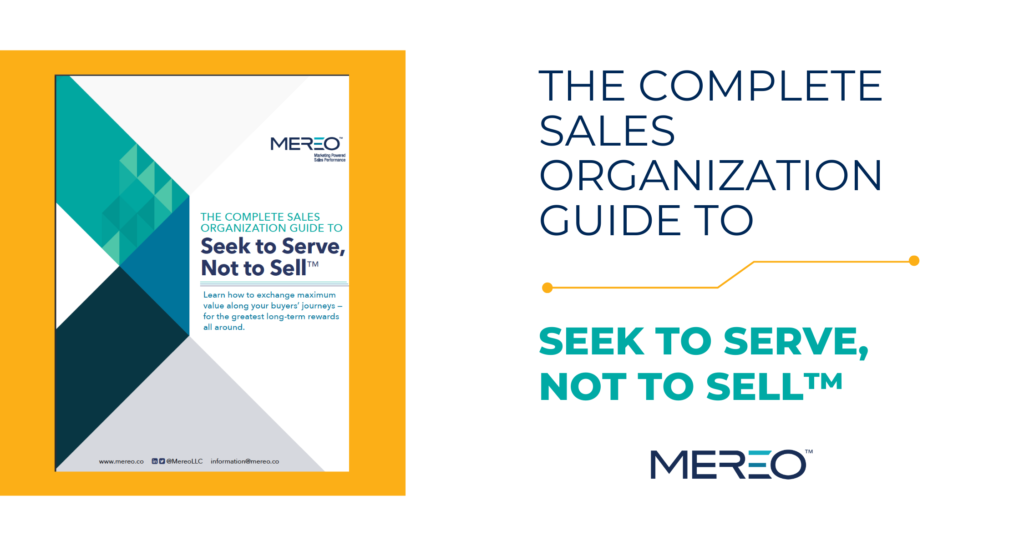As teams across the world face talent shortages and high turnover, an employee experience management strategy becomes even more important for sophisticated B2B selling organizations.
Competition for skilled individuals has grown fierce — a reported 69% of employers are struggling to fill positions (ManpowerGroup). Korn Ferry research predicts the global talent shortage could reach 85.2 million people by 2030. Even more concerning, a high rate of executive leaders are leaving their positions for greener pastures. In late 2021, a DDI survey revealed an 18% turnover rate of corporate leaders. Anecdotally, our revenue consultants at Mereo have likewise been approached by clients searching for world-class sales leaders and professionals, while executive contacts have sought advice on their next move to new leadership roles at different organizations.
The reasons for turnover vary between individuals. But one thing has become clear as turnover and skill shortages abound: employees, much like buyers, are growing in power.
An employee experience management strategy can help provide your employees — and leadership — the purpose, growth opportunities and drive to best serve your business and its buyers, while your people feel like your organization is best serving them. It can help you not only attract the right people to excel in their roles, it can keep them there for the long haul — a situation which can contribute to sustainable revenue performance.
WHAT IS AN EMPLOYEE EXPERIENCE MANAGEMENT STRATEGY?
Employee experience management refers to the employee journey during their lifecycle at an organization. This management strategy no longer is just a human resources concern but rather can be an important driver for productivity and engagement. For example, what are the experiences of your employee at various touchpoints at your company and throughout their tenure? When done well, employee experience (EX) can help attract, engage, retain and develop high-performing employees and leadership.
Now more than ever, leadership face numerous decisions on things that affect EX: where people work, their schedules and flexibility, what tools will be provided, and what coaching will be given. Yet research has found that just 48% of large U.S. organizations report having a dedicated employee experience program (Forrester).
People rarely leave their roles for compensation alone. They more and more crave positive and meaningful experiences at their place of business. The focus of an EX management strategy puts people over process improvement. It shifts the corporate culture to that of the Mereo Seek to Serve, Not to Sell™, inwardly, which then translates outwardly to your buyer relationships.
HOW CAN LEADERS SUPPORT THEIR EX MANAGEMENT PROGRAM?
Executive leadership has a responsibility to help enhance employee experiences and ensure the EX program effectively delivers sustainable productivity and performance. Gallup research has found that the No. 1 reason people change jobs is due to “career growth opportunities.” During the pandemic, as workplaces went remote, many leaders were faced with a much-needed shift from supervisors to leadership roles more akin to coaches.
An EX program reinforces this shift: While nice managers will be liked and appreciated by employees, leaders do their employees and their organization greater service by becoming effective leadership coaches to help drive growth and development. With a coach, your employees’ experience is boosted with resources, motivation, accountability and more.
In line with leadership coaching, the Chief Reminding Officer approach can help elevate your leadership and your employees’ experience even further. With CRO direction, employees gain consistent culture, skill and behavior reinforcement. This leadership style can also help build the sense of agency, trust, cohesion, collaboration and purpose that many employees desire. For greatest results, leaders should align the EX management strategy with the company’s purpose, brand and culture.
HOW CAN AN EX MANAGEMENT STRATEGY BENEFIT EXECUTIVE LEADERS?
EX management strategies can help build stronger, more-engaged teams. According to the recent McKinsey Employee Experience survey, employees who have regular positive experiences at work are 16 times more engaged and 8 times more likely to stay with an organization than those who do not. This correlates to greater productivity, lower turnover, better company reputation and increased ROI — all things your executive leadership team desires.
On a personal level as a leader, an EX management program can help improve your own experiences within your leadership role. Further, it can elevate your purpose within the organization and align with the in-person, digital or hybrid environment that best serves your daily life. The program not only will bring out the best leader within you, it also will build corporate, leader and individual systems of accountability to benefit the organization as a whole.
EX DEMANDS THE RIGHT LEADERSHIP
If and when executive turnover does hit your organization, it is important to not move with haste but to find the right person who can help elevate the experiences — and performance — of your employees.
Learn how Mereo stepped in as the interim product marketing leader for Castellan, a business continuity and resilience SaaS leader, to provide the leadership team the right amount of time to recruit the best executive to fill the role for the long-term. Contact our expert revenue consultants to learn more about our executive coaching and interim leadership support.

